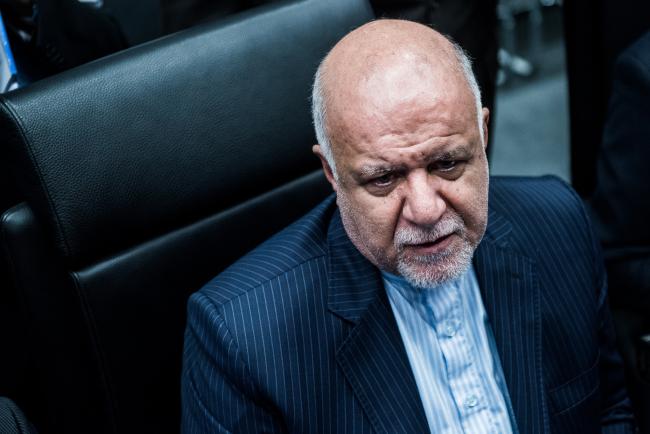(Bloomberg) -- Iranian oil minister Bijan Namdar Zanganeh’s threat to veto any OPEC decision that harms the Islamic Republic will have no impact on oil supply and will be ignored by those producers who are able to boost their oil production, just as happened in 2011, writes Bloomberg oil strategist Julian Lee.
Zanganeh is right to say that the Joint Ministerial Monitoring Committee, which will meet in Algeria on Sunday, does not have the authority to make any decision on a new production agreement. Its job is to oversee the implementation of an existing deal, reached in 2016 with a group of non-OPEC countries, to cut supply by around 1.8 million barrels a day to reduce excess stockpiles of oil.
By June 2018, the group’s output had come down more than intended and the deal was tweaked when oil ministers met in Vienna that month. According to Saudi Arabia and Russia, they decided to bring the group’s collective production into line with the level agreed in 2016, adding about 1 million barrels a day to supply. Under Iran’s interpretation, though, the agreement was for each country to bring its own production into line with its individual target, yielding a smaller increase. The difference is important.
The Saudi/Russian target can only be reached if those countries that have spare capacity make up some of the shortfall from those who don’t, taking their market share. According to Saudi oil minister Khalid Al-Falih, speaking at the press conference that followed the OPEC/non-OPEC meeting in June, "the delivery of this 1 million will be left to the JMMC to co-ordinate amongst countries that have capacity to produce." And Zanganeh can’t stop that from happening since Iran isn’t a member of the JMMC.
A single OPEC member can in theory block any decision by the group, which has to be reached by unanimity. But in practice, such objections have little impact on how individual members of the producer group act. OPEC has no power to police the actions of its members, nor to apply sanctions if they flout agreements. When a group of countries, led by Iran, Venezuela and Algeria blocked a Saudi request to boost OPEC’s output target in June 2011, the kingdom went ahead and raised its output anyway. The group’s production ceiling was increased when ministers next met in December that same year.
Iran has no good options. It can’t prevent the JMMC from reallocating supply among those with spare capacity for the next three months. It can’t stop Saudi Arabia and Russia from raising output. It could theoretically block any OPEC agreement when ministers meet in December, but that would simply take the group back to its previous pump at will policy, which is the opposite of what Iran wants to see.
NOTE: Julian Lee is an oil strategist who writes for Bloomberg. The observations he makes are his own and are not intended as investment advice
